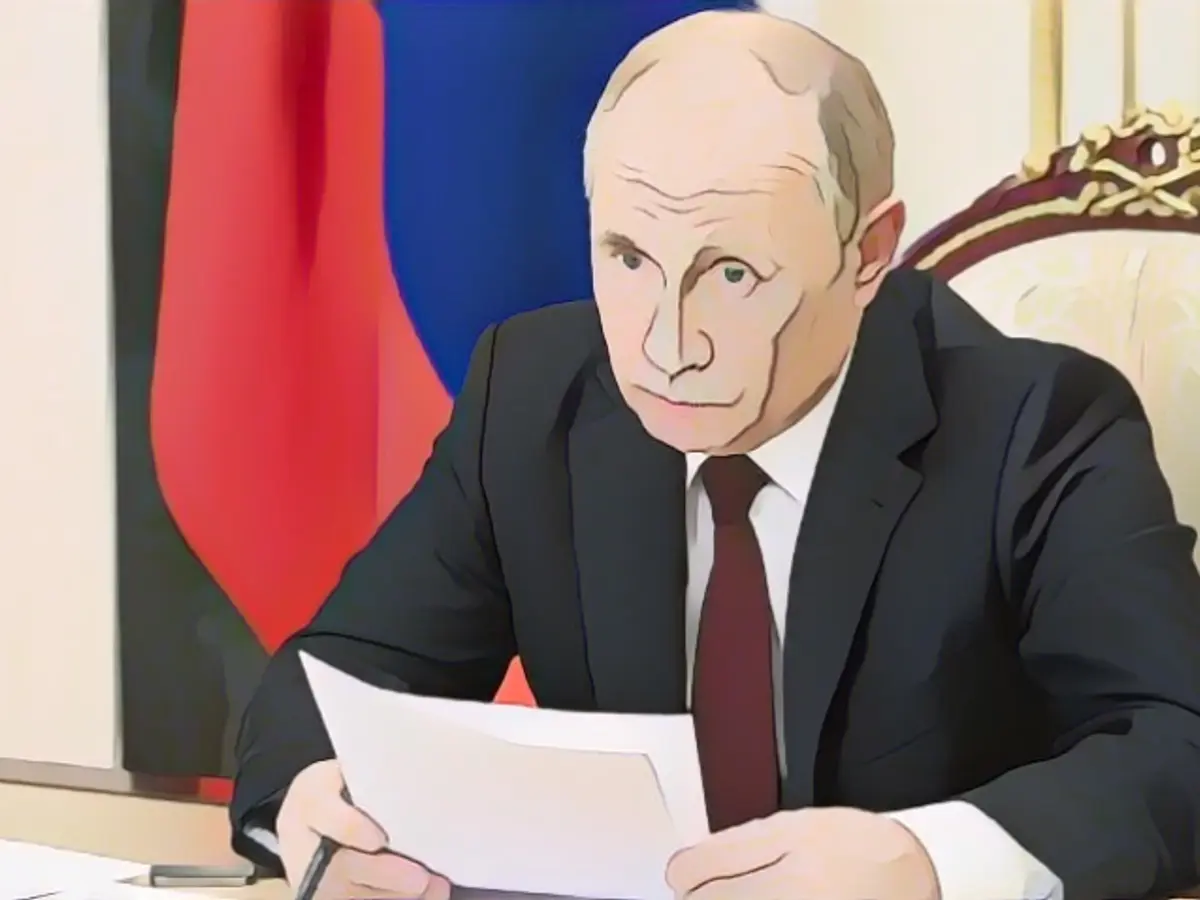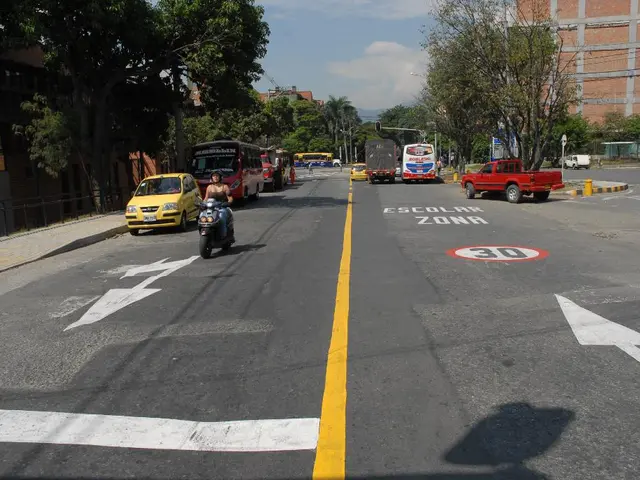Russia is starting to feel the impact of the sanctions. Now, it's time for the West to step up its game
It's unclear if Putin has an exit strategy. Now it's time for the West to take the lead and strengthen its grip on all Russian banks, airspace, and foreign assets, which serve as the comfort zone for oligarchs.
We can learn a few lessons from past prolonged conflicts. The absence of an exit strategy was a major factor that led to the United States and the Soviet Union's struggles in Afghanistan, and perhaps more accurately, the United States' long, costly war in Iraq.
Operation "Shock and Awe" launched by the United States on March 21, 2003, in Iraq, consisted of over 1,700 aircraft sorties and 504 cruise missiles. Within about two weeks, U.S. ground forces had entered Bagdad, and after four days of fierce fighting, the Iraqi regime collapsed. On April 14, the Pentagon announced that the major military operations had come to an end.
Yet, despite the presidential announcement by George W. Bush on May 1, 2003, that the mission was accomplished, the United States remains, in some sense, in Iraq 18 years later. This serves as a reminder of what could happen to Putin and his followers in Ukraine.
Of course, Ukraine is not Iraq, and Putin is not Bush. However, the conflict remains a wake-up call for Putin and his invasion forces, who are facing more determined resistance in Ukraine than they had anticipated.
There's a significant difference from what happened in Iraq. In these 18 years, no other country made any serious attempts to undermine the U.S. economy or even hinder it, despite the resilience of its fighting forces and its continued prosperity despite enormous costs.
Although there have been protests both within and outside the country, the United States has retained the support of most of its allies and has not become a pariah on the road to a failed state. If the democracies aim to quickly end the Russian invasion, they need to cause economic problems that force Putin to call off the war.
Many of Putin's long-term international relationships are at risk. Xi Jinping of China may have reservations. He welcomed Putin to the Winter Olympics in Beijing and signed a 30-year gas supply deal with China, paid for in euros. China refused to veto a UN Security Council resolution condemning the invasion. Publicly, China denies supporting the Russian attack. But it seems that the blame is being shifted to the United States and its allies. Reports indicate that the Chinese government refused to label the attack on Ukraine as an "invasion."
Even some of Russia's long-time Western allies are starting to think differently. The French presidential elections are only six weeks away, and several challengers to President Emmanuel Macron – far-right candidates Marine Le Pen and Eric Zemour, as well as leftist leader Jean-Luc Mélenchon – have had to revise their support for France's presidential campaign.
Meanwhile, Belarusian President Alexander Lukashenko has joined forces in Russia's efforts, and Ukrainian intelligence suggests that Belarus is ready to directly participate in an invasion in Ukraine. If Putin wants to position himself as a multinational leader, sanctions should also be imposed on Belarus, as on Russia. This could be the final push to topple the only other leader willing to align with Russia.
As the international community takes some steps, it must maintain collective pressure. It remains to be seen where the book ends. On the one hand: Banking bans, freezing accounts of many oligarchs, even Putin's own, bans on all Russian flights in the European airspace, even withdrawing major multinational corporations like BP from joint ventures with Russian companies in Germany. And then there are all the sanctions that Joe Biden has announced and that have been approved by European leaders, prime ministers, and even Japan, Australia, and Switzerland.
Harder sanctions would undermine Putin's ability to hold onto a country that is hostile to him and from which many of his enemies hail, including many major powers.
But how much power does Putin need to lead a never-ending war in a country he cannot conquer? That's a lot, and likely currently unlimited – the deployment of Russian troops in each town and city would put a strain on the limited and dwindling resources. Worse still: What would happen if Russia were to target major oil pipelines, Kiev's fuel reserves, or airports before major urban fighting takes place? What? Stay and occupy? How would Russia feed its population or its occupying forces?
Beyond the costs for the Ukrainians to resist, the measures taken could potentially serve as punishment that even a dictator like Putin might take notice of. On the other hand, the world may be less affected. But can we believe that this is the price the Ukrainians are paying today that is most similar to that?
Ultimately, Russian finance expert Bill Browder estimates Putin's wealth at $200 billion, surpassing Jeff Bezos ($177 billion) and Elon Musk ($177 billion). Although Musk has taken great care to keep the source and location of his wealth a secret, making it almost impossible to freeze his accounts. Meanwhile, the Russian banking system has taken great care to insulate itself from the U.S. dollar economy, moving all or a significant portion of its U.S. dollar assets out of the Treasury and reducing its foreign debt to $300 billion (18% of GDP). This is in stark contrast to the $31 trillion in U.S. debt (133% of GDP). A total ban on the use of the global funds transfer system SWIFT on all Russian banks would likely trigger a panic among the banks of the country.
Enrichment Data:
To target Putin's wealth and increase pressure on Russia, several strategies can be employed as part of sanctions:
- Asset Seizure and Freezing: Disband the U.S. Justice Department's now-defunct Task Force KleptoCapture, which was designed to seize the assets of Russian oligarchs and penalize those who facilitated sanctions violations. Although it has been disbanded, similar efforts could be reinitiated or adapted to target Putin's associates and their assets.
- Financial Sanctions: Restrict international transactions, squeezing liquidity and credit availability, and applying full blocking sanctions on all Russian banks and key financial institutions. Also, impose blocking sanctions on designated individuals and entities, including senior Russian government officials, state-owned corporations, and major businesses, their families, and ongoing addition of new names to national lists of designated persons.
- Targeting Key Industries: Impose sanctions on key Russian firms in the energy and metals sectors, such as Gazprom and Rosneft, which are vital to Russian government revenues and military operations. Also, impose a full embargo on uranium, aluminum, and steel products, as well as extending sanctions to cover pipeline gas, LNG, nitrogen fertilizers, and metals like nickel.
- Enforce the Oil Price Cap: Implementing the oil price cap, including through sanctions for using Western maritime services and shipping Russian oil above the oil price cap. Once credible price cap compliance has been achieved, lower the oil price cap by $10 a barrel to further restrict Russia's oil exports.
- Designating Russia as a Sponsor of Terrorism: Designate Russia as a sponsor of terrorism to strengthen the legal and moral costs for countries that continue to trade with Russia. This can include sanctions on entities and individuals facilitating such activities.
- Western Companies Withdrawal: Encourage and enforce Western companies to leave Russia for the duration of the war. Sanction companies that continue to profit from operating in Russia or with Russian entities, particularly prominent companies like Schlumberger and Raiffeisen.
- Enhanced Enforcement: Strengthen enforcement of existing sanctions by providing more resources for government agencies responsible for imposing and enforcing sanctions. Sanction Western service providers, including law firms that facilitate evasion of sanctions.
- Secondary Sanctions: Impose secondary sanctions on foreign financial institutions engaging in transactions involving Russia’s military-industrial base. This includes restrictions on the import of certain Russian goods and severe penalties for non-compliance, such as total exclusion from the U.S. dollar-based global financial system.
These strategies aim to disrupt Russia's economy, strain the finances of Putin's associates, and increase the political pressure on Putin to end the war in Ukraine.







